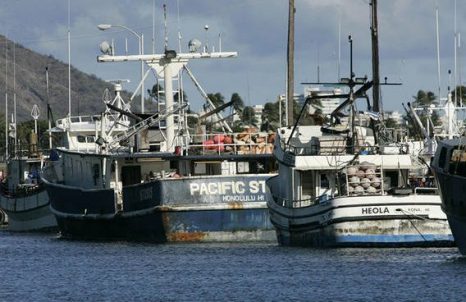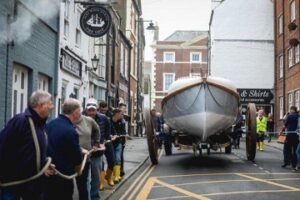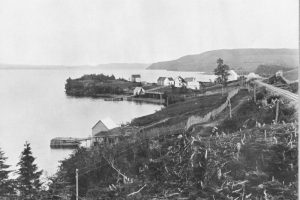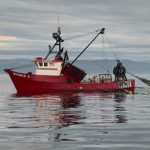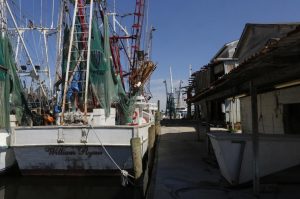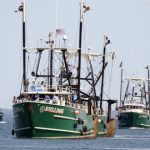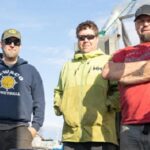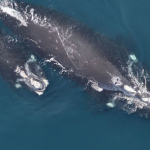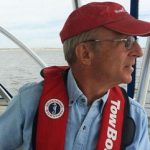Monthly Archives: September 2018

The Sago Extreme – Closing the longline snackbar
Sisters on the west coast of Norway have provided the impetus behind the development of a system designed to protect longline catches from predating whales that treat the lines as a free lunch. Ingunn Elise and Linn Solveig Sørvik took an idea their father Omar had originally come up with some years before, and have taken it to the stage of being a commercial product ready for use. Omar Sørvik came up with the idea while he was working on longliners fishing for toothfish in the Southern Ocean, where sperm and killer whales stealing fish from the lines as they are hauled is a serious problem for fishing vessels. >click to read<16:41
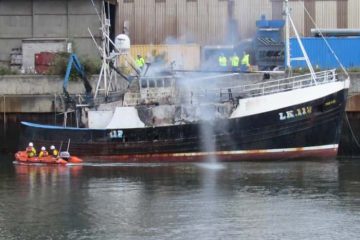
Arson probe launched after fishing boat blaze in Sunderland
Police and fire chiefs are today investigating the cause of a blaze on board a fishing boat moored in Sunderland. A member of the public raised the alarm about a fire abroad the Prevail, which was moored at Clark’s Quay, under the Queen Alexandra Bridge, at about 6.30am. The RNLI and Coastguard personnel were there to provide safety cover to firefighters who were fighting the fire. The operation lasted about three hours, until the crews were satisfied that the fire would not re-ignite. The boat suffered significant damage in the fire, whose cause is being investigated. >click to read<14:10
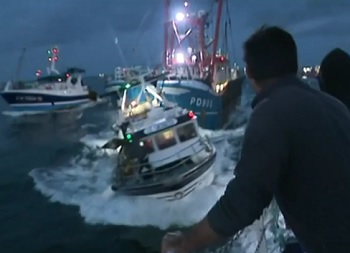
The Scallop War: Food for Thought
Music may be the food of love, but the quest for food has often been the cause of friction and political insecurity. That friction has been evident throughout history. Ancient Rome was troubled by the increase in the price of bread. In the 15th century, 1482-84, the Salt War took place among papal forces, their Venetian allies, and the Duke of Tuscany over the salt that had been reserved to Venice, the only port allowed to trade in salt. The famine in Ireland in the 1840s still has political overtones in British-Irish relations. The 900-day Nazi blockage of supplies to Leningrad, September 1941 to January 1944, caused the deaths of 1.5 million Russian soldiers and civilians and the evacuation of another 1.4 million. The Cod War, really a number of interstate disputes in 1950, 1958, and 1972 between Britain and Iceland over fishing rights in the North Atlantic,,, Now we have an outbreak of a new food war: a Scallop War between Britain and France. >click to read<12:55

Fisheries Minister Wilkinson fires back at enviro groups for suing over killer whales
Canada’s fisheries minister has fired back at environmental groups for launching court action to protect endangered southern resident killer whales instead of working with the federal government on the issue. Jonathan Wilkinson said the groups abandoned discussions shortly after they began with federal officials and representatives from the transportation and fishing industries. “They were the ones who initially asked to convene the multi-stakeholder forum. They effectively attended one meeting and then decided that they would pursue a more adversarial approach rather than a collaborative approach.” >click to read<10:48
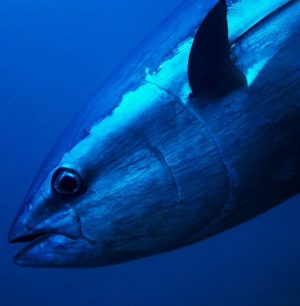
Japan fails to win approval to increase tuna catch quotas
Japan failed to win approval at an international fisheries meeting for its proposals to increase overall catch quotas for Pacific bluefin tuna. The proposals were supported by Taiwan and South Korea but opposed by the United States and the Cook Islands. States in opposition said that it’s too early to expand quotas as the numbers of such tuna are still extremely small. They were put forward at the Western and Central Pacific Fisheries Commission’s Northern Committee, where any proposal requires unanimous approval.>click to read<10:13
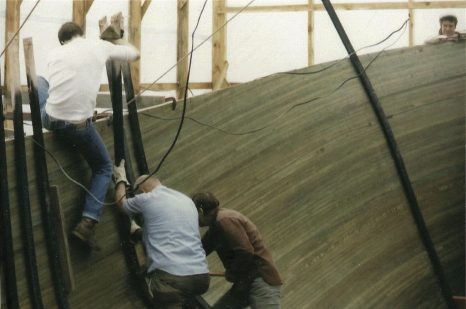
The View From Swamptown: Donald W. Wilcox Sr. was a true man of Narragansett Bay
Don Wilcox was born to spend his days out on the waters of Narragansett Bay. Its harbors and coves were as familiar to him as the streets and lanes are to a postman on his beat. If someone were to tell me that his blood flowed saltier than yours or mine, well, I’d have no trouble believing it. I expect he was never happier than when he was hauling in a full dredge loaded with mussels, seagulls squawking and swinging through the air above him, starfish and spider crabs scurrying around between his feet. That was his world. That was his life. Claimed by two different seaside villages, Wilcox – Apponaug’s most prominent boatbuilder, and Wickford’s king mussel man – was at ease and at home in both places, pleased as punch to be living both lives. >click to read<09:09

Canadian lobster exporters feel ripple effect of U.S.-China trade war
The United States-China trade war is creating choppy seas for Canada’s lobster exporters. It has led to the dumping of Maine lobster — now priced out of China — in other Asian markets and Europe, said Jack Liu, president of North American operations for Zoneco, a large Chinese seafood company with a Nova Scotia operation. Dumping is when a country or company exports a product in a foreign market at a price that is lower than the price in the exporter’s domestic market. “All of a sudden they lost the Chinese market due to the 25 per cent tariff and what are they going to do? They are going to dump those amount of lobster into other parts of the world market. We have seen that,” said Liu. >click to read<19:08
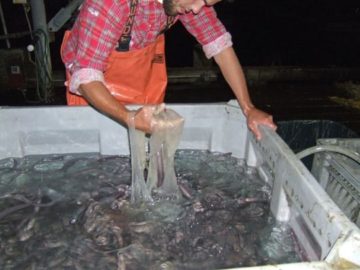
‘Slime eel’ massacre caused by Washington man’s boat accident, lawsuit says
An Oregon boater is in a bit of a mess after he caused thousands of pounds of live “slime eels” to die, according to a lawsuit from the company that planned to sell the hagfish to Asia consumers.
Darin Rodabaugh is accused of negligence in a lawsuit from AA Seafood of Depoe Bay. The lawsuit claims Rodabaugh, from Kennewick, Washington, was pulling his boat out of the water at the Port of Depoe Bay on Sept. 10, 2016, and didn’t lower the antenna or mast.,,But more importantly to AA Seafood, it knocked out the power to the warehouse where the company stored 16,400 pounds of live hagfish.,,, This quiet industry went largely unnoticed until 2017 when a truck from AA Seafood carrying 7,500 pounds of live hagfish lost several containers along U.S. 101 near Cape Foulweather about 3 miles south of Depoe Bay. photo’s >click to read<13:39
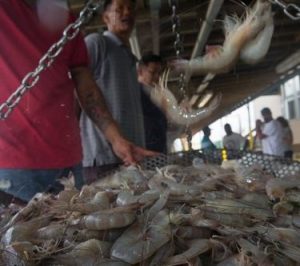
Louisiana shrimpers avert strike but their catch hits all-time low
Louisiana shrimpers are getting a little more money for their catch – but a lot less of a catch. The summer has been a roller coaster for the state’s shrimp industry. Last month, shrimpers threatened to strike if prices continued their steep decline, reaching levels early this year that hadn’t been seen since the 1980s. But a slight uptick – about a nickel more per pound of shrimp – placated many shrimpers. “It pacified them from doing anything,” Acy Cooper, a Venice shrimper and president of the Louisiana Shrimp Association, said Thursday (Sept. 6). “They’re kind of good with it, but not good with it, if you know what I mean.” >click to read<12:49

Bid to reduce right whale deaths ‘extremely effective,’ Canadian officials say
A year after the population of critically endangered North Atlantic right whales suffered devastating losses, Canadian officials say measures taken this season to protect the species have worked. With the summer fishing season in the Gulf of St. Lawrence drawing to a close, the federal Fisheries Department confirmed Friday that not one whale has died as a result of a ship strike or fishing gear entanglement — the main causes for most of the deaths last season. In all, 17 right whales died last year — 12 of them in Canadian waters,,, The federal government responded with a series of protection measures, which included speed restrictions for boats, increased surveillance and a series of closures of fishing areas where right whales were spotted. >click to read<11:36
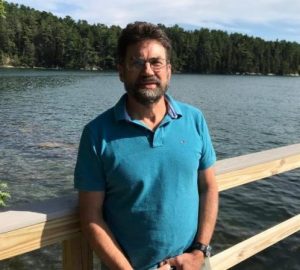
Wahle named director of the Lobster Institute at the University of Maine
University of Maine marine sciences research professor Richard Wahle has been named director of the University of Maine’s Lobster Institute, effective Sept. 1. He succeeds Robert Bayer, who has directed the institute since 1995 and is retiring from UMaine this year. Wahle joined UMaine’s School of Marine Sciences in 2009. He is based at the University’s Darling Marine Center, where he will continue to teach and conduct research. In 1989, Wahle founded the American Lobster Settlement Index, a program that now monitors the number of juvenile lobsters that settle to the seafloor at over 80 sampling sites from Rhode Island to Atlantic Canada. The index sheds light on the ocean processes that deliver lobster larvae to their rocky coastal nurseries, and serves as a predictor of trends in recruitment to the fishery. >click to read<10:36
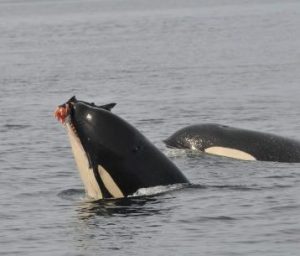
Impossible Choices: The Complicated Task of Saving Both Orca and Salmon
Decades of politics and foot-dragging have stymied the recovery of threatened and endangered Chinook salmon, while an iconic population of killer whales that depends on them veered toward extinction. Now, a last-ditch effort to save the whales may also be what thwarts the recovery of Chinook. The Southern Resident killer whales are dying. An extended family of 75 orcas living year-round in the sea surrounding the San Juan Islands near Seattle, their numbers never fully rebounded since aquariums that later became SeaWorld captured a third of them in the late 1960s. And there are other culprits. Cargo ships and whale-watching boats zip through the Salish Sea, adding noise that interferes with the whales’ ability to locate each other and their prey. The water they live in is toxic. The Puget Sound outside Seattle is tainted with flame retardant, and PCBs and pollutants gush from nearby rivers into the sea. >click to read<10:13

The Scallop War: No Deal! UK and French fishermen fail to agree
British and French fishermen have failed to finalise a deal to end the “scallop wars” over fishing in the Channel, according to the French camp, despite reaching an agreement in principle earlier this week. “The fact is that there is no agreement because British claims [for compensation] were disproportionate … We have a blockage, but the discussions have not broken down,” said Hubert Carre, the director of the French national fishing committee, adding that it would now be up to the “two ministers to call each other to arrange a possible future meeting”. >click to read<20:36
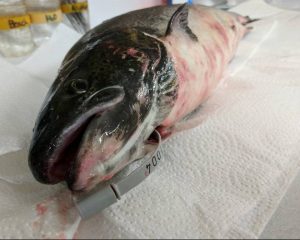
Atlantic salmon aquaculture farmers cited as ‘likely source’ of European strain spawning in Fundy waters
Tom Smith says it’s “misleading” to blame Atlantic Canadian aquaculture farmers for European farm salmon spawning in the Bay of Fundy over the past two decades. Fisheries and Oceans Canada published a report Aug. 31 confirming the presence of European farm salmon in the inner Bay of Fundy, saying the fish spawning has created a hybrid species in the Fundy. The Atlantic Salmon Federation released a report Sept. 6 and says it’s “disturbing” that DFO research has found the fish have been spawning in the bay’s inner waters since 1997, and that it identifies Atlantic open net-pen salmon aquaculture as the “likely source.”,,, “[The industry] is in violation of New Brunswick’s Aquaculture Act and the Federal Species at Risk Act and …Canada’s international obligations under the Williamsburg Resolution…, which prevents the introduction of non-native salmon in domestic waters,”,,, >click to read<17:34
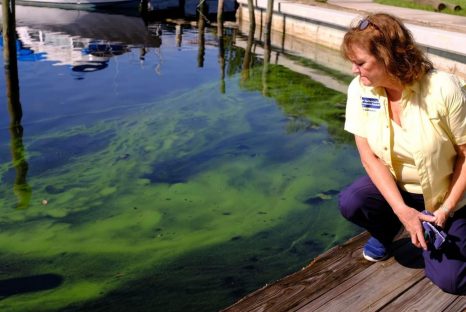
Red tide and green slime: Florida faces epic statewide fight with algae
We may smell it first, warned environmentalist Rae Ann Wessel. She was right. Along a wall of mangroves, the stench last week advertised of something to be buried. It was a greeting to Fort Myers’ algae horrors. Green slime and red tide are invading the Fort Myers region’s inshore and offshore waters, slaughtering marine life and threatening a more sinister outcome: Toxins produced by a green-slime variety may link to neurodegenerative illnesses, say some scientists who are investigating. For decades, Florida’s watery environment has been sickened by pollution from septic and sewer systems, storm water and fertilizer from landscaping and agriculture. That “nutrient” pollution, with nitrogen and phosphorus flavors,,, Video, >click to read<14:24

House Bill 56: Cap raised to $400,000 on Alaska Commercial Fishing Loan Fund
New legislation boosts to $400,000 the cap on money that may be borrowed through the Alaska Commercial Fishing Loan Fund to purchase limited entry permits, individual fishing quotas and gear. House Bill 56, sponsored by Rep. Dan Ortiz, I-Ketchikan, was signed into law on Aug. 31 by Alaska Gov. Bill Walker in a ceremony at Fisherman’s Hall in Kodiak. Ortiz said the bill addresses the problem of too many Alaskans are priced out of commercial fishing because they can’t afford a permit, quota or gear. >click to read<13:31
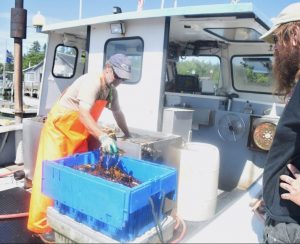
Cranberry Isles Fishermen’s Co-op celebrates 40 years
In 1978, Bruce Fernald and Dave Thomas went to consult with an attorney about starting a fishermen’s cooperative and left the attorney’s office with a contract. “We had a purchase and sale agreement and away we went,” said Thomas. They were purchasing an existing lobster buying business, one that had been operated by Lee Ham for nearly two decades. Ham put the dock up for sale just as Thomas, Fernald and other fishermen from the island were contemplating creating a member-owned cooperative. The co-op began with about 25 members, Thomas said, and the first couple of years of the operation were bumpy. >click to read<11:35
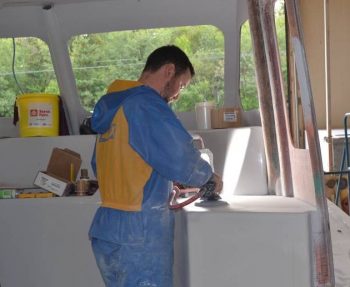
Every boatbuilder is busy – Waiting list for fishing boats grows longer
Gordon Campbell says fishermen know before they step through the doors of his shop that they will have to wait a while for delivery once they place an order for a new fishing boat. Campbell owns Provincial Boat and Marine Ltd. in Kensington, a builder of fiberglass fishing vessels. “I’ll not use exact times, but several years,” he described his company’s current wait list for new boats. “The word’s out there: Every boatbuilder is busy. (Fishermen) know they’re not going to get one before the end of the year or for next spring or whatever,” Campbell comments. >click to read<
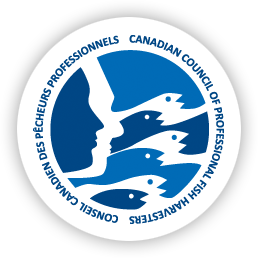
Fisheries Labour Market Information Study – Shortage in skilled labour may limit fishing industry growth
About 40 per cent of Canada’s fish harvesters will soon reach retirement age, which places a “serious limitation” on the economic growth potential in the fishing industry, a national study has found. The Canadian Council of Professional Fish Harvesters (CCPFH) announced Thursday it has completed its Fisheries Labour Market Information Study, which came to a number of important conclusions. With declining and aging populations in most coastal and rural regions, and with about 40 per cent of the current fisheries labour force — both enterprise owner-operators and crew — now reaching retirement age, there will be a serious limitation on the industry’s economic growth potential due to critical shortages in skilled labour.>click to read<10:03
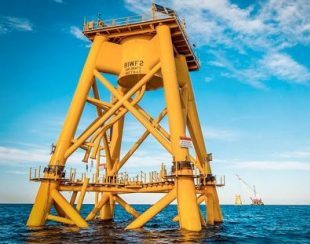
South Fork Wind Farm : Plea to fund fishing survey has still not been granted
Several months after they asked East Hampton Town for $30,000 to collect data aimed at protecting fishing grounds and compensating commercial fishermen when they are unable to work, that request has still not been granted, the director of the Long Island Commercial Fishing Association and the liaison chosen by East Hampton Town’s fisheries advisory committee to communicate with Deepwater Wind complained to the town board on Tuesday. While the liaison, Julie Evans, and Bonnie Brady of the fishing association addressed the board, Deepwater Wind, the Rhode Island company planning to construct the 15-turbine South Fork Wind Farm approximately 30 miles off Montauk, is in the midst of a projected four-month survey at the site and along the transmission cable’s route to shore. >click to read<09:04
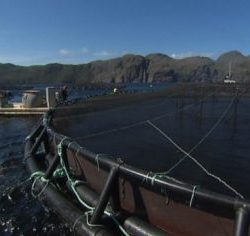
Alaska wary of federal push for marine aquaculture. Everyone should be.
During a recent stop in Juneau, NOAA Fisheries chief Chris Oliver said that wild seafood harvests alone can’t keep up with rising global demand. But there’s another way. “Aquaculture is going to be where the major increases in seafood production occur whether it happens in foreign countries or in United States waters,” Oliver told a room of fishermen, seafood marketing executives and marine scientists.,,, There’s a bill pending in the U.S. Senate that could decide how federal aquaculture is regulated. It’s being backed by an industry group called Stronger America Through Seafood. >click to read<20:58

Sam Parisi: Some acknowledgments and concerns
As a third generation fisherman, I am very concerned as to where our oldest industry, the fishing industry is headed. My concern is for the younger generation that is not interested in making fishing their occupation, and a next generation of young people from fishing families where fathers are telling them to do something else because our government has imposed so many restrictions that have robbed them of opportunity, while reducing local fishing fleets to a bare minimum. If we don’t do something we will not have any of our kids going fishing, so what then? Who will take the helm? >click to read< 20:19
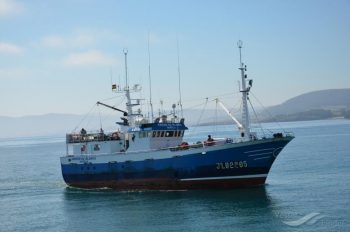
Captain of Spanish Longliner Charged with Shark Finning
The captain of a Spanish-flagged fishing vessel has been charged with shark finning after Irish Naval Service personnel boarded his vessel and found more than one tonne of fins on board. After a tip-off from Ireland’s Sea Fisheries Protection Authority (SFPA), the patrol vessel William Butler Yeats intercepted and boarded the longliner Virxen de Blanca off the southwestern tip of Ireland. The Yeats escorted the de Blanca to port at Castletownbere, Cork, where she was transferred to the custody of the SFPA and the Garda Siochana. >click to read<17:26

FISH-NL calls on DFO to continue direct consultations with inshore harvesters
The Federation of Independent Sea Harvesters of Newfoundland and Labrador (FISH-NL) is calling on the federal Department of Fisheries and Oceans to once again hold direct consultations with inshore harvesters. “DFO is to be commended for holding outreach meetings last winter for the first time in a generation,” says Ryan Cleary, President of FISH-NL, “but the precedent has been set, and the department must hold them every year to keep its finger on the pulse of inshore harvesters.” DFO held a series of 20 outreach meetings around the province in the fall/early winter of 2017/2018 to hear directly from harvesters. The consultations were called following years of complaints that the FFAW-Unifor is no longer the voice of harvesters, which, as it turned out, was the most common theme at the outreach meetings. >click to read<14:26
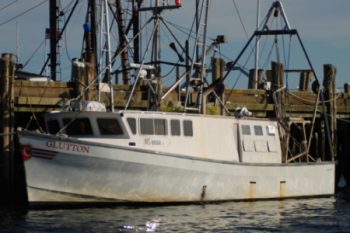
Close call for crewmember of the F/V Glutton
The emergency radio call came at about 7:30 a.m. Saturday, when Capt. Beau Gribbin of the F/V Glutton reported that one of his crew had fallen overboard and needed immediate medical attention. William Bowen, 24, had gotten caught in lobster gear and pulled 60 to 70 feet underwater for at least three to four minutes, Gribbin confirmed on Tuesday. “We were almost to the end of setting traps with only three left and he got tangled up and ripped overboard,” he said. “It does happen. Usually the guy gets knocked overboard and surfaces pretty quickly, but in this case Will was stuck.” >click to read<
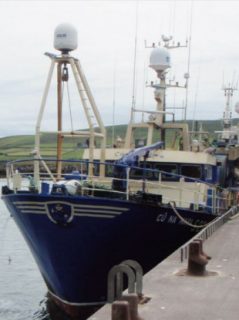
Fisherman who drowned after being thrown overboard had his lifejacket deflate while he was in water
Deflation of a crew member’s lifejacket was a “major impediment” to his survival when he was thrown overboard off the south-west coast, the Marine Casualty Investigation Board (MCIB) has found. Additionally, a second crew member put himself at risk when he jumped into the water to try save the first man without any lifeline, the MCBI said. The probe looked into the fatal incident that happened when the FV Cu Na Mara fishing trawler was out to sea around nautical miles west of Slea Head on 30 June 2016. In the process of transferring over an attachment of nets from the net drum to its towing winch, one of the crew members got into difficulty, went over the stern and into the water. >click to read<10:16
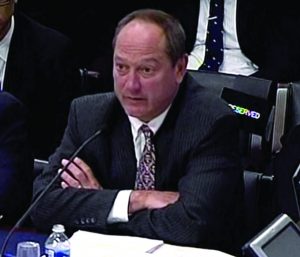
After year in DC, NMFS Chris Oliver reflects on fisheries progress
Chris Oliver has had a busy year since he made the leap from Anchorage to Washington, D.C. to take the lead job at the National Marine Fisheries Service. As soon as he arrived, there was an annual priorities document to review,,, The document is both internally-facing and public to help guide NMFS’ decisions. There were three goals listed in that document, the first of which was to ensure the sustainability of fisheries and fishing communities. He changed it to read “maximize fishing opportunities while ensuring the sustainability of fisheries and fishing communities.” “There are a number of fisheries around the country where we’re not fully utilizing the available harvest whether it’s choke species or bycatch constraints or outdated regulations,” >click to read<09:00

A lobster wholesaler is suing one of its part owners, alleging he embezzled nearly $1.5 million from the business.
Sea Salt, which operates as a wholesaler and a restaurant on Route 1 in Saco, alleges that the part owner, Matthew Bellerose of Scarborough, set up a sham customer with another man and then sent the phony client thousands of dollars worth of lobsters without billing the customer. The lobsters were then resold, the lawsuit says. The suit says Bellerose and Vincent J. Mastropasqua of Portland, who also is named as a defendant in the lawsuit, set up a company called “East End Transport” and established a fictitious customer of Sea Salt named “Mastro’s.” Both businesses listed their addresses as a UPS store in Scarborough. Mastropasqua is a part-time UPS employee. >click to read< “08:12






